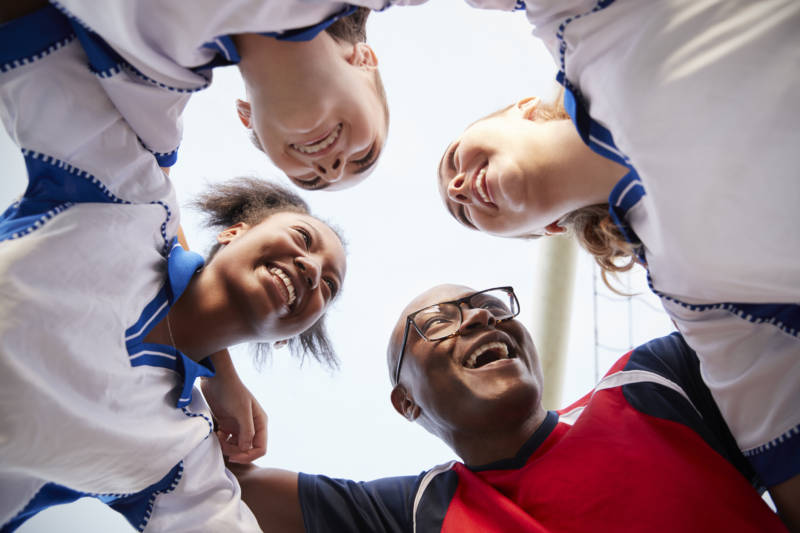Of course, not all coaches are effective, and some kids will take home destructive lessons and sour memories from their sports experiences. Even worse, the intimacy of the coach-athlete relationship can morph into abuse. But sports remain the most popular extracurricular activity for children ages 6-17, ahead of religious education, music, dance and art. For better or worse, coaches affect child development.
The shorter path to learning and emotional jolt that sports provide give coaches an opportunity to reach their student athletes in several ways:
Forging personal relationships. “My coaches took the time to know me personally,” Carter said about her high school coaches, a sentiment shared by many former athletes. An in-depth study on the developmental benefits and drawbacks of sports conducted by researchers at Queens and York universities confirmed these perceptions. The majority of swimmers who participated in the study reported that their coaches had made “special connections with athletes.”
And the relationships often go both ways: Students know their coaches more personally, too, and see them as fully fledged adults rather than educators at a podium. Will Sangree, now 28, remembers the time commitment his high school lacrosse, cross-country and hockey coaches devoted to their teams. Practice and game time, team dinners, bus rides — “they invested so much time in us, I definitely knew them better than my teachers,” he said.
Sangree remembers observing his coaches with their children, and noting that how they interacted with their own families had a powerful impact. It felt natural seeing a coach in different settings and taking on various roles, whereas running into a teacher out of school “was a weird, out-of-body experience,” he said.
Working together toward a shared goal. Shane Murphy, a professor at Western Connecticut State University and former president of Exercise and Sports Psychology at the American Psychological Association, often starts his sports psychology course by asking students if the class is a team. The students always say no. “That’s because we don’t have shared goals,” Murphy explained. Everyone is graded individually, and classmates’ performances have no bearing on the other students. On sports teams, players are often interdependent, and effective coaches underscore the need for unity and work toward a common goal. “Coaches are involved in helping individuals feel a part of something bigger than themselves,” Murphy added.
Even teams made up of individual competitions, like track or tennis, can be unified by coaches who emphasize everyone’s contribution to the team’s performance, and who build a sense of camaraderie. Teenagers might feel a sense of purpose in sports that’s lacking in the classroom. Maggie Lynch, now a junior in college, recalled how her high school field hockey and lacrosse coaches compelled her to work toward a common goal. “I felt as though my coaches actually trusted me in important and consequential situations,” she said, “whereas my teachers encouraged me to do well solely for my own benefit, not for the benefit of the group.”
Tailoring motivation to the individual. To be sure, dedicated and experienced teachers work to teach children in a way that they will best understand. But teachers working with dozens of kids in multiple classes aren’t afforded the time to know what sparks every student. Good coaches, on the other hand, who often spend countless hours with their players, will motivate each one depending on her personality and nature — knowing that a quiet word of encouragement to one child won’t work with another, who might respond better to blunt feedback. Because coaches often have a deeper understanding of the kids on their team, they are better able to tailor their motivation to the child in front of them.
Providing adult friendship. Research on child development shows that teenagers who have healthy relationships with adults other than their parents are less apt to bully or experience depression and are more inclined to engage in school and their community. For some students, coaches play this role. Aly Carter remembers her high school coaches interacting with her more casually than her teachers. “My coaches came down more to my level, while my teachers were more like authorities,” she said. That informality removed barriers to a relationship and allowed her to build lasting bonds with caring adults. Lynch had a similar memory about her high school sports experiences: “I got to form real friendships with adults and was given responsibility from people other than my parents,” she said.


